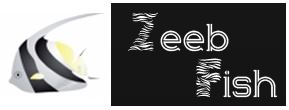Microsoft Build 2025: Microsoft’s AI Revolution Takes Shape – 10 Key Takeaways for Developers
Microsoft Build 2025 has wrapped up, and the message is clear: the era of AI is here, and Microsoft is placing significant bets on shaping its future, particularly through the widespread adoption of AI agents. The Book of News alone details over 50 announcements designed to empower developers to build faster, think bigger, and innovate at scale. From unified platforms to enhanced developer tools and deep integration into core workflows, here are 10 key takeaways from this year’s event.
1. Agentic AI is at the Forefront: A dominant theme is the evolution of AI into collaborative “digital colleagues”. Microsoft is introducing tools and platforms like Microsoft 365 Copilot’s Agent Builder and the Azure AI Foundry Agent Service to help developers and makers build, tune, deploy, and manage these agents across Microsoft’s vast ecosystem, including Microsoft 365, Azure, Windows, and the Power Platform…. The vision is for agents to automate tasks and work seamlessly alongside humans.
2. Unified Platforms Simplify AI Development: Microsoft is consolidating AI development tools into comprehensive platforms. Azure AI Foundry is presented as a unified platform for designing, customizing, and managing AI apps and agents, covering the full developer lifecycle from model selection to deployment and managemen. Similarly, the new Windows AI Foundry aims to provide a unified platform for local AI development on Windows and MacOS.
3. AI is Massively Boosting Developer Productivity: AI is being embedded directly into developers’ favourite tools and environments. GitHub Copilot is expanding with new coding and SRE agents. SQL Server Management Studio (SSMS) is getting Copilot integration to streamline SQL development9. Visual Studio Code and Visual Studio are seeing enhancements powered by AI to accelerate coding, app modernization, DevOps, and database management.
4. AI is Weaving into Core Microsoft 365 Workflows: Microsoft 365 Copilot continues to gain features that fundamentally change how users handle daily tasks. New capabilities in Outlook use AI to help users navigate inboxes by summarizing search results and attached files within emails and prepare for meetings faster by surfacing relevant context and documents. Copilot Pages allows transforming AI responses into editable, shareable pages, integrating AI into productivity flows.
5. Connecting AI to Enterprise Data is Crucial: A major focus is making it easier for AI agents and applications to access and understand organizational data. New capabilities are being introduced across Microsoft Fabric, Azure Cosmos DB, and Azure AI Search to enable AI to reason over diverse data sources. This is vital for grounding AI models in real, internal knowledge for accurate responses and actions.
6. Robust Security and Governance for AI are Prioritised: Microsoft is rolling out enhanced security features and compliance controls specifically for AI applications and agents. This includes integrating Microsoft Purview for data security and compliance checks within AI workflows. Microsoft Defender for Cloud insights are being brought into Azure AI Foundry. A new Microsoft Entra Agent ID is being introduced to manage agent identities and access securely.
7. GitHub is Transforming into an AI-Native Development Hub: GitHub is increasingly becoming an AI-centric platform. Key announcements include the GitHub Copilot coding agent and SRE agent, GitHub Models for experimenting with various large language models (LLMs) within the platform, and the open-sourcing of GitHub Copilot Chat in Visual Studio Code. These steps aim to make AI a core collaborator throughout the software development lifecycle.
8. Microsoft is Driving Open Standards for the “Agentic Web”: To ensure interoperability in the emerging agent ecosystem, Microsoft is actively contributing to and supporting open protocols. This includes joining the Model Context Protocol (MCP) Steering Committee and contributing identity and registry standards. A new open project, NLWeb, is also introduced to bring conversational interfaces directly to websites using MCP.
9. Windows is Becoming a Powerful On-Device AI Platform: The Windows platform is being enhanced to support building and deploying AI applications that run directly on client devices, leveraging local hardware like NPUs. Updates include the new Windows AI Foundry, Windows ML, and AI APIs designed for efficient, privacy-preserving on-device inference. This allows for scenarios where constant cloud connectivity is not available or privacy is paramount.
10. Business Automation is Being Accelerated by AI Agents: The Power Platform is receiving significant updates to facilitate the creation and integration of AI agents into business applications and portals. Features in Copilot Studio, Power Apps, and Power Pages enable both low-code makers and pro-code developers to build solutions that automate complex business processes, leveraging AI agents as collaborative partners.
These announcements collectively highlight Microsoft’s commitment to integrating AI, and particularly agentic AI, deeply across its product portfolio and developer tools, aiming to redefine productivity and development workflows in the years to come.

